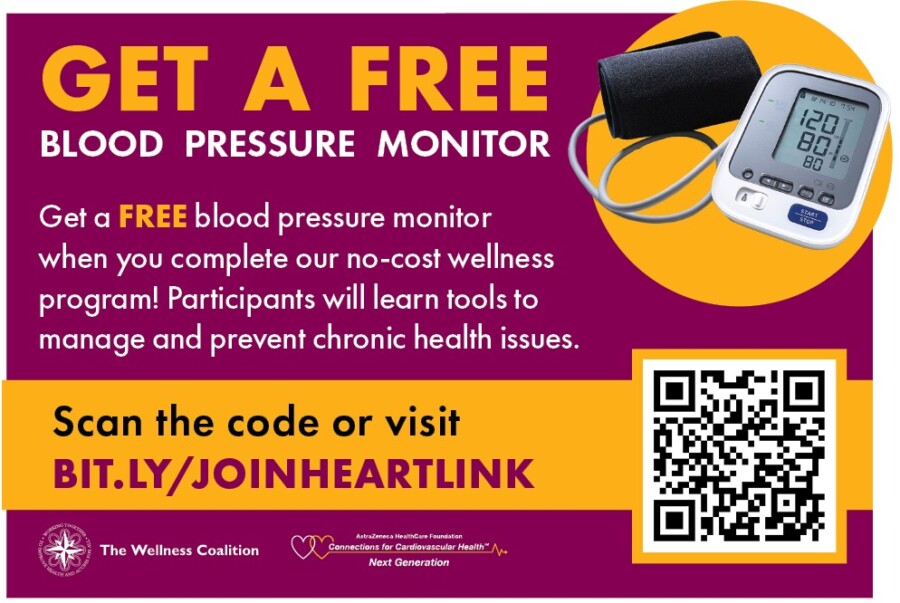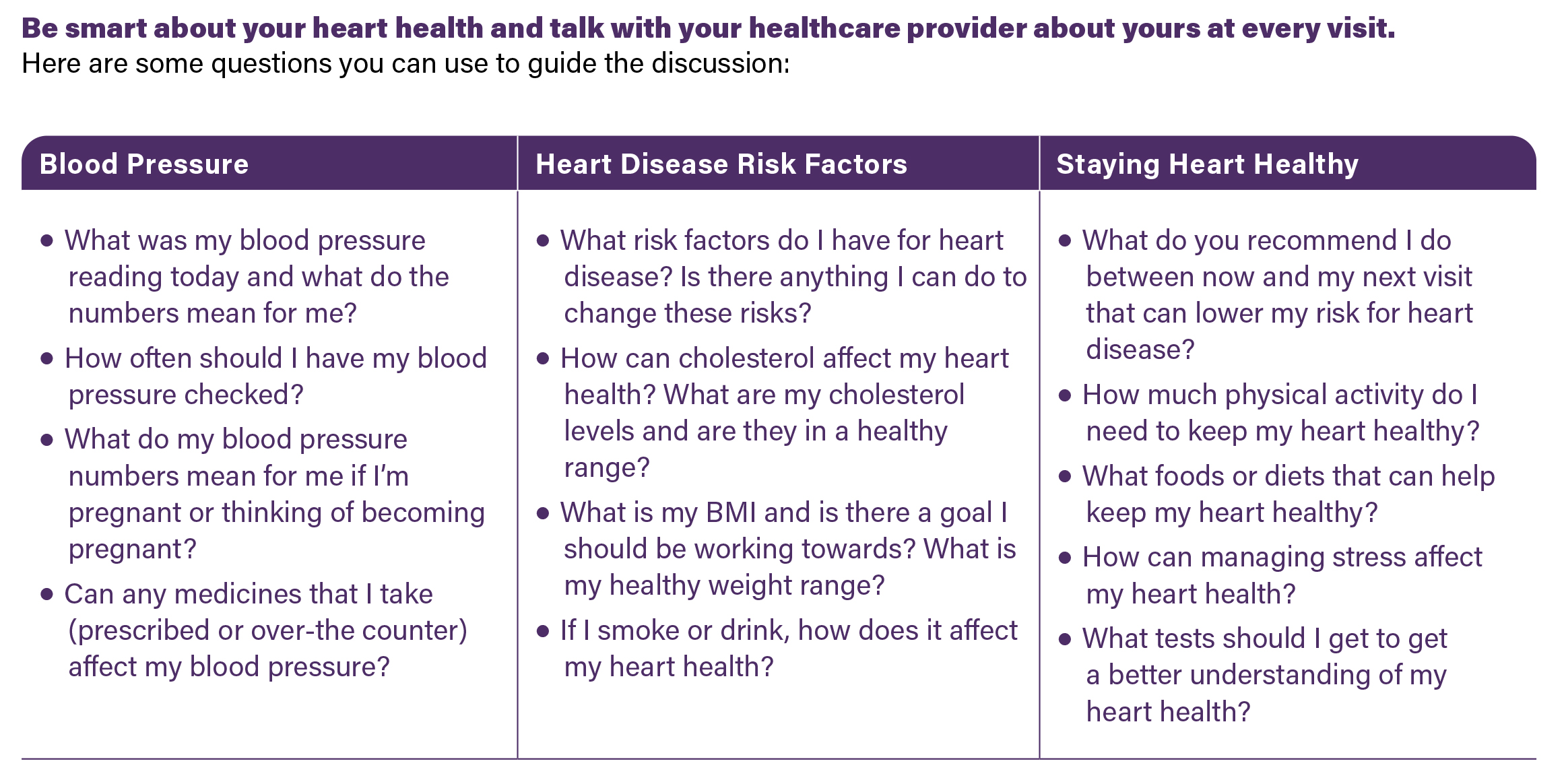 Heart disease is a leading cause of death in the United States for both men and women. But you can do a lot to help the patients and clients you serve to stay heart-healthy. The National Heart, Lung, and Blood Institute has prepared straightforward information that you can share to increase understanding of what being heart-healthy means.
Heart disease is a leading cause of death in the United States for both men and women. But you can do a lot to help the patients and clients you serve to stay heart-healthy. The National Heart, Lung, and Blood Institute has prepared straightforward information that you can share to increase understanding of what being heart-healthy means.
What Is Heart-Healthy Living
Heart-healthy living involves understanding your risk, making healthy choices, and taking steps to reduce your chances of getting heart disease, including coronary heart disease, the most common type. By taking preventive measures, you can lower your risk of developing heart disease that could lead to a heart attack. You can also improve your overall health and well-being.
The first step toward heart health is understanding your risk of heart disease. Your risk depends on many factors, some of which are changeable and others that are not. Risk factors are conditions or habits that make a person more likely to develop a disease. These risk factors may be different for each person.
Preventing heart disease starts with knowing what your risk factors are and what you can do to lower them. Risk factors for heart disease:
- High blood pressure
- High blood cholesterol
- Overweight or obesity
- Prediabetes or diabetes
- Smoking
- Not getting regular physical activity
- A family history of early heart disease, for example if your father or brother was diagnosed before age 55, or your mother or sister was
diagnosed before age 65 - A history of preeclampsia, which is a sudden rise in blood pressure and too much protein in the urine during pregnancy
- Unhealthy eating behaviors
- Age 55 or older for women or age 45 or older for men
Each risk factor increases your chance of developing heart disease. The more risks you have, the higher your overall risk. Some risk factors cannot be changed. These include your age, sex, and a family history of early heart disease. Many others can be modified. For example, being more physically active and eating healthy are important steps for your heart health. You can make the changes gradually, one at a time. But making them is very important.

Have a Heart-to-Heart About Heart Health
Risk factors such as high blood pressure or cholesterol generally don’t have obvious signs or symptoms. A crucial step in determining your risk is to see your provider for a thorough checkup and risk assessment.
Your provider may use a risk calculator to estimate your risk of having a heart attack or a stroke, or dying from a heart or blood vessel disease in the next 10 years or throughout your life. For example, the Atherosclerotic Cardiovascular Disease (ASCVD) Estimator considers your cholesterol levels, age, sex, race, and blood pressure. It also factors in whether you smoke or take medicines to manage your high blood pressure or cholesterol.
Your provider can be an important partner in helping you set and reach goals for heart health. Ask about your risk for heart disease at your annual checkup. Since your risk can change over time, keep asking each year.
Refer Patients and Clients to Our Free HeartLink Wellness Program
In this free wellness program, you can learn how to manage and prevent chronic health issues such as cardiovascular disease, diabetes, hypertension, arthritis, and more! You’ll also get:
 Help setting and achieving wellness goals
Help setting and achieving wellness goals- Access to wellness resources
- Free enrollment in lifestyle change and/or chronic disease self-management classes
- A free blood pressure monitor when you complete the program
The Wellness Coalition’s HeartLink program seeks to improve the cardiovascular health and health behaviors of uninsured and underinsured adults in Alabama’s River Region, through:
- Access to primary care
- Health insurance
- Free/low-cost medications
- Community resources
- Self-management of cardiovascular disease, delivered by trained Wellness Navigators providing wellness case management and chronic disease self-management education
The HeartLink program is available to adult residents of Autauga, Elmore, Lowndes, Macon, and Montgomery counties.
Astrazeneca Healthcare Foundation
The Wellness Coalition is actively working to help prevent and better manage cardiovascular disease in Montgomery through the innovative Connections for Cardiovascular HealthSM Next Generation. Since 2010, the AstraZeneca HealthCare Foundation’s Connections for Cardiovascular HealthSM program has awarded over $24.8 million in grants to 58 organizations nationwide.
More than 1.7 million people have been reached and over 63,000 people have had their heart health progress tracked through a variety of Connections for Cardiovascular HealthSM Grant Awardees’ programs.
As a result, these people are making lifestyle changes that help lead to better health and lower risk of cardiovascular disease. Participant results include improvements such as losing weight, reducing body mass index, lowering blood pressure and hemoglobin A1C levels, making healthier food choices, and exercising more.
Learn more by calling The Wellness Coalition at (334) 293-6502 or by visiting thewellnesscoalition.org/heartlink.
